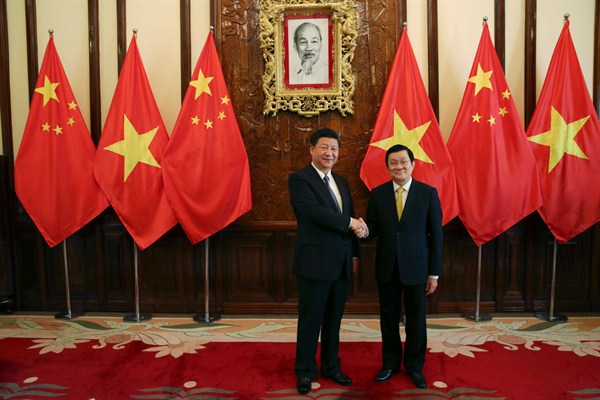Editor’s note: This article is part of an ongoing WPR series on the South China Sea territorial disputes and the various claimant countries' approaches to addressing them.
When Chinese President Xi Jinping visited Hanoi early last month, he did so with understandable fanfare and scrutiny. His was the first visit to Vietnam by a Chinese president in a decade. It came just weeks before the annual ASEAN and East Asia Summits, and only a few months ahead of the Vietnamese Communist Party congress to be held in early 2016. Given the timing, observers in China and Vietnam, as well as abroad, assumed that Xi hoped to return the bilateral relationship to a more even keel after it was driven to its lowest level in years following the May 2014 deployment of a Chinese oil rig in disputed waters and subsequent rioting against factories in Vietnam, which were wrongly believed to be Chinese-owned.
With China’s reputation around Southeast Asia severely battered by its artificial island-building campaign and other provocations in the South China Sea, Xi’s Vietnam visit was seen as a harbinger of a more conciliatory diplomatic approach in the region—one that would avoid further deterioration of relations and convince China’s neighbors to return to the fold. But the results were decidedly mixed. The visit and its aftermath did show the continued influence that China enjoys in Vietnam and to a degree throughout Southeast Asia, which is reflected in an earnest desire across the region to maintain good relations with Beijing wherever possible. But it also underscored how much reputational damage China has inflicted on itself through perceived aggressiveness in the South China Sea, while shining a light on the commitment of regional states to diversify their relationships in order to hedge against future Chinese provocations.

